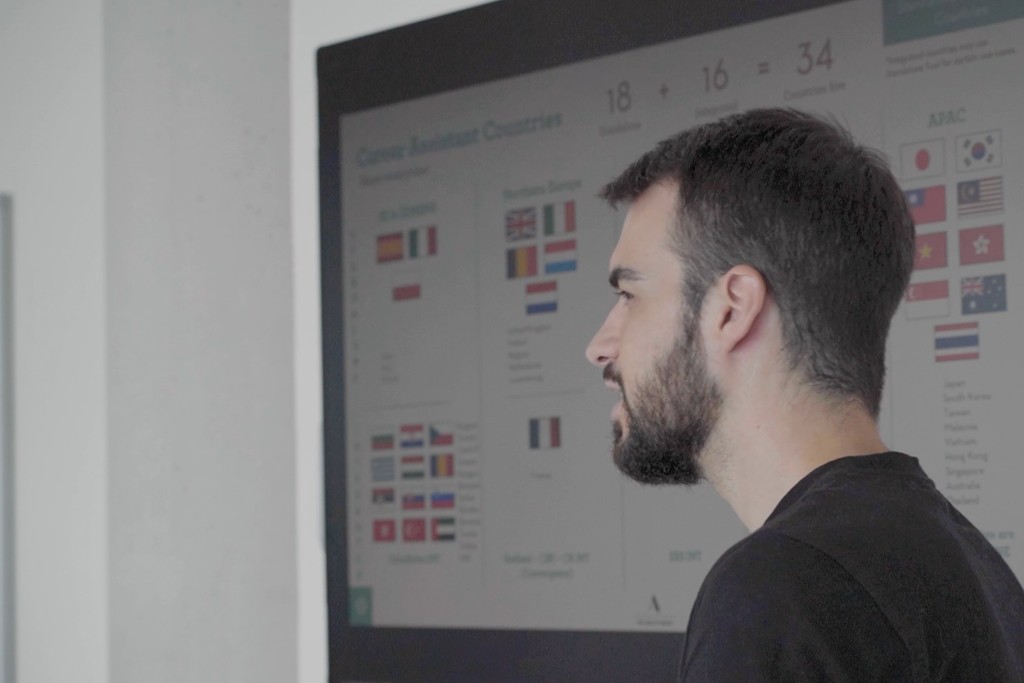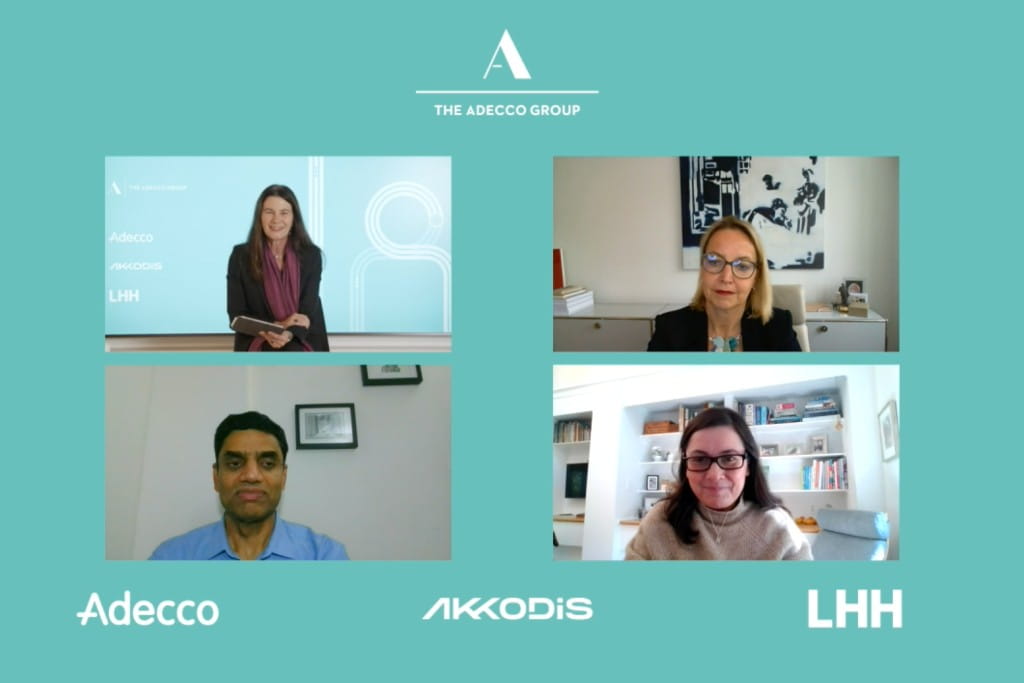The World Economic Forum's annual meeting in Davos will have a multitude of urgent issues to address - and the future of the global workforce is one of the most pressing.
The agenda at Davos 2023 already acknowledges that despite growing economic turmoil, the Great Resignation is still in progress, with workers either leaving their jobs now or seriously considering it soon. A dizzying mix of catalysts, from inflation and the cost-of-living crises to political unrest and war in Europe, is fuelling deep uncertainty. This is feeding into a world-wide identity crisis across workers from manual labourers to CEOs.
As Davos 2023 calls for 'a new social contract', leaders in the world of work will need to navigate three key trends fundamentally swaying their world: the green transition, digitalisation, and talent scarcity.
The Green Transition
The green transition is a people transition. Around the world, organisations must find talent and then they must retain it. As jobs are overhauled and new skills are required to tackle climate change, this is a daunting task.
Data from our Global Workforce of the Future 2022 highlights that 60% of workers believe the transition to the green economy will force them to learn new skills - and it seems this prospect is alienating many of them.
Karin Reiter, SVP Sustainability & ESG at the Adecco Group, believes this is because people aren’t being put front and centre of the transition. "Employees are not merely stakeholders of a business – they are the business. They are not a cost, but an asset, and merit being treated as such. It's time to be more deliberate in the design, development and implementation of processes, products, and services, and their impacts on people."
Loyal employees are also essential for businesses to turn over a healthy profit. In the US, for example, the past five years have seen a 237% increase in the number of renewables and environment jobs. As the demand for workers with the green skills required to fill these openings soars, training, nurturing and retaining people is becoming increasingly crucial.
The Digital Dance
There’s no sidestepping this. Digitalisation and automation are impacting the skills required for every job across every industry. As organisations scramble to keep pace with the fluctuating demands of Industry 4.0, approaching skills-based workforce planning with transparent and data-driven approaches is critical.
Augmented reality technology is set to bring breathtaking change, but its benefits are predicted to massively outweigh its challenges. The Adecco Group’s Chief Sales and Marketing Officer, Valerie Beaulieu, describes it as "the best chance in a generation to shake up the way companies welcome new employees."
She points to gamified tasks and workplaces as an important tool to engage younger workers (more than 80% of whom play video games least once a week) - with similar innovations bringing remote colleagues together. "The age of hybrid working is exposing a need for greater connection and community, which the Metaverse is growing and nuancing daily."
Rather than daunting and depressing the workforce, digitalisation, AI and automation can - and should - excite and enable it. Career opportunities will change but not deplete. As the World Economic Forumputs it: "Jobs of the future will not look like jobs of the past and that is OK. Trusting in the superpowers created by automation will drive innovation and efficiency, resulting in more opportunities for the workforce of tomorrow."
Talent scarcity
All these challenges are playing out at a time when talent itself remains scarce.
"How to ensure they have the right talent, with the right skills, at the right time over the coming years - this is what’s keeping our clients up at night," says Adecco Group CEO, Denis Machuel.
The shape of employment is shifting. Permanent placements are jostling with a rising pipeline of flexible and freelance opportunities, while job vacancies for each are at an all-time high. While some talent scarcity might be linked to workers leaving less attractive working conditions, another key reason is a lack of people with the right skills.
But once the right people are found, keeping them is not a given. If not sufficiently engaged and nurtured, 6 out of 10 workers (61%) are confident of finding a new job in six months or less. And with only 13% happy at the level of upskilling they are being offered, employers are risking having to rehire - at almost triple the cost of upskilling an existing employee.
Machuel points to a need to shift focus from the acquisition of new workers to building resilience through retaining and retraining. "Companies that master this will weather the storm and succeed."
Davos and beyond
These three trends present us with two major opportunities to build a better future for the world of work. First, organisations should be purpose-driven. This means supporting career development, upskilling, flexibility and nurturing mental health and wellbeing. The company culture should reflect 21st century societal issues. Secondly, organisations should commit to models of sustainable employment. This will entail shifting the focus to long-term value creation that extends beyond the four-walls of the organisation, through a people strategy which includes transparency on skilling opportunities. If the only thing certain about the world in 2023 is continued uncertainty, these approaches will at least allow companies to ensure they have a resilient foundation.



